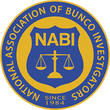Jury Duty Scam
A senior receives a phone call from the county courthouse saying that because she missed jury duty that week, a warrant for her arrest was being issued. It involves a person calling the victim on the phone, posing as law enforcement and threatening them with contempt of court for failure to report for jury duty. The scammer often has access to the victims' personal information, including their address and information about recent moves.
They may even use the real name of a police officer and make the caller ID look like it's coming from a law enforcement agency.
The scammers have been telling victims that there is a warrant for their arrest unless they pay a fine over the phone — often insisting they use pre-paid cards, wire transfers, gift cards or even dropping cash off at a physical location.
It's yet another identity theft scam that tries to scare people into divulging personal information such as birth dates, social security numbers, and credit card account numbers. After originating in upstate New York in 2001, it has spread to other states. These calls may actually appear on your caller ID to be coming from the county courthouse - a technique called "spoofing" which allows scammers to choose any telephone number they want and have it displayed on a recipient's caller ID.
Authentic jury duty notifications, as well as "no-show" summons, are almost always delivered by mail. Local, state, and federal judicial officials would never ask for personal information over the phone.
They may even use the real name of a police officer and make the caller ID look like it's coming from a law enforcement agency.
The scammers have been telling victims that there is a warrant for their arrest unless they pay a fine over the phone — often insisting they use pre-paid cards, wire transfers, gift cards or even dropping cash off at a physical location.
It's yet another identity theft scam that tries to scare people into divulging personal information such as birth dates, social security numbers, and credit card account numbers. After originating in upstate New York in 2001, it has spread to other states. These calls may actually appear on your caller ID to be coming from the county courthouse - a technique called "spoofing" which allows scammers to choose any telephone number they want and have it displayed on a recipient's caller ID.
Authentic jury duty notifications, as well as "no-show" summons, are almost always delivered by mail. Local, state, and federal judicial officials would never ask for personal information over the phone.
